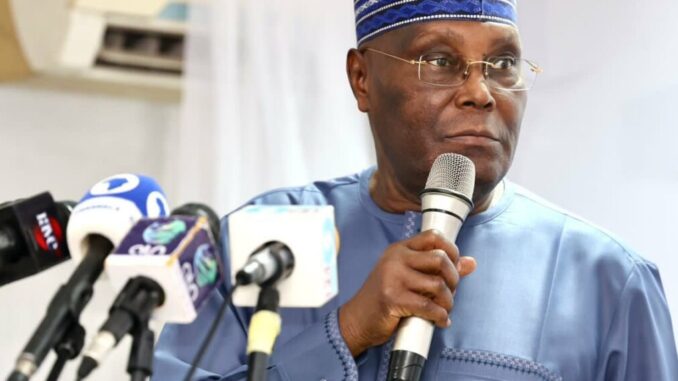
Nothing is more interesting than seeing your enemies exchange blows, raining curses on one another and breaking apart. Bola Tinubu, a renowned Nigerian politician, is a testament to the political maxim that says a battle is easily won when enemies are divided.
At the just concluded presidential election in Nigeria, Mr Tinubu, 70, fondly called Jagaban, rode on the major weaknesses of his opponents — chronic division and lack of collaboration. He maximised this to grab Nigeria’s greatest power seat.
On 1 March, Mr Tinubu of the All Progressive Congres (APC) was declared the president-elect after defeating his major opponent, Atiku Abubakar of the People’s Democratic Party (PDP), in the most keenly contested and controversial election since 1999. Mr Tinubu polled a total of 8,794,726 votes to beat Mr Atiku, who scored 6,984,520 votes in the presidential elections.
But how did Mr Tinubu, a first-time presidential candidate, defeat Atiku, a man who had contested to be Nigeria’s president many times and failed?
The Baits for Tinubu’s Divide-and-Rule Antics
In 2015, Mr Tinubu had worked with major opposition parties, such as the Congress for Progressive Change (CPC) and a section of the PDP — including Atiku — to unseat a president they all wanted to be removed. This strategy worked like magic because the opposition was united for a course: installing Muhammadu Buhari who is now Nigeria’s outgoing president after eight years in the corridor of power.
In 2019, Atiku ran against Mr Buhari — with Peter Obi of the Labour party as his running mate — and lost in a keenly contested poll. About four years later, Atiku’s campaign pride against Mr Tinubu was that he had pulled 11 million votes, against Mr Buhari, hoping to overtake the latter’s strength in the core northern region.
Last year, Mr Obi suddenly left PDP for Labour Party to become the presidential candidate after claiming that forces beyond his power frustrated him out of his former party. Before then, Rabiu Kwankwaso, a political demigod in Kano, left PDP for the New Nigerian Peoples Party (NNPP), hoping it would be Nigeria’s third political force.
Why did Kwankwaso leave PDP abruptly?
Muhammad Jemu, his political ally provided an answer in an interview with Daily Trust, saying Kwankwaso and Obi’s breakaway from PDP was due to the leadership deficiencies of Iyorchia Ayu, the national chairman of the party.
TEXEM Advert
“It was under Ayu’s watch that we lost Engr. Rabiu Kwankwaso, we lost Mr Peter Obi and today we are having challenges,” Mr Jemu said. “So, these are issues of failed leadership within the party which need to be corrected”
Atiku equally failed to provide leadership that could unite the party as the presidential candidate of the PDP.
Enters the Divide-and-Rule Strategist
Interestingly, Mr Tinubu saw that the house of his major opposition was not in order and what did he do? He may not have started the crises but he fuelled the disunity by romancing grudging members of the PDP overtly and covertly and wooing them to his side. He adopted the divide-and-rule tactics and it worked potently.
Otherwise known as divide-and-conquer, political and sociological theorists say this tactic has been an effective military and political strategy for over 2,500 years. And, between 2022 and now, we have seen this at play on the Nigerian political earth.
“The art of using troops is this: When ten to the enemy’s one, surround him; when five times his strength, attack him; if double his strength, divide him,” says Sun Tzu, the brilliant military strategist and the author of The Art of War, a classic book on politics and military antics.
Mr Tinubu may have taken this lesson from Sun Tzu and used it well. Funnily enough, Abdulmumin Jibrin, a former director-general of Mr Tinubu’s campaign organisation, joined Mr Kwankwaso’s NNPP, citing a rift between him and Kano Governor Abdullahi Ganduje. Mr Jibrin maintained a good relationship with Mr Tinubu, despite his new political affiliation. Later, on national television, Mr Kwankwaso would say if he realised his presidential mission would fail, he would rather prefer to align with Mr Tinubu than return to Atiku in PDP.
Sources familiar with the political weather of the two parties said Mr Tinubu’s moles had planted discontent and distrust, stirring insurmountable differences between a political group who should have more things in common than they have differences. This is a significant factor that broke the party into three and nearly broke it up.
END

Be the first to comment